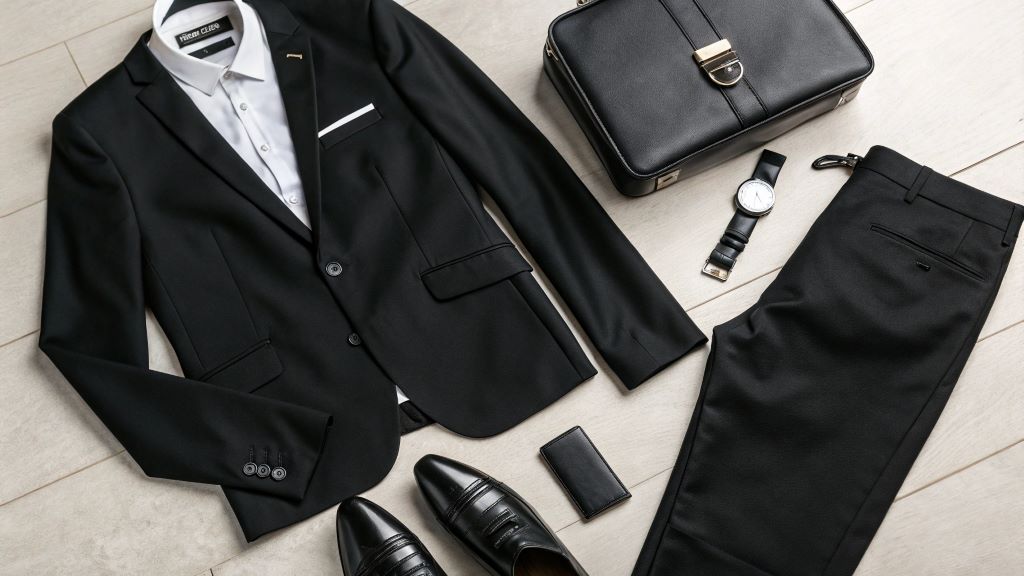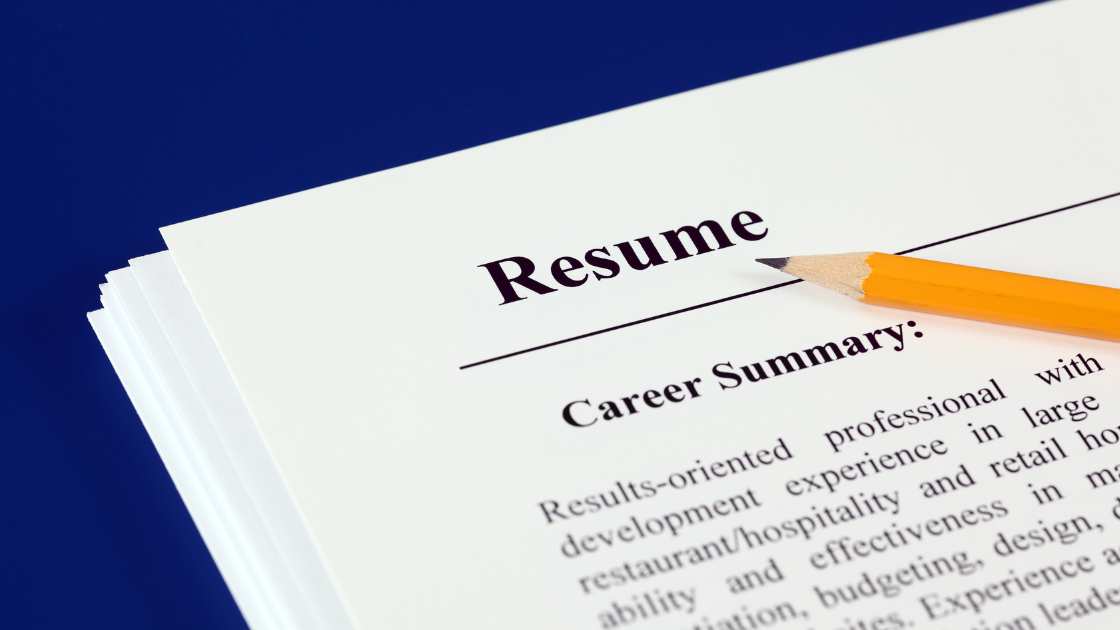The question of whether black is a professional color for a job interview is a complex one, steeped in cultural associations, industry norms, and individual perceptions. While often considered a staple of professional attire, its suitability can vary significantly depending on the context. In this article, we’ll delve into the nuances of using black in interview attire, exploring its pros, cons, and how to make informed choices that project confidence and respect.
The Power and Peril of Black in Professional Settings
Black, undeniably, carries a certain weight. It evokes a sense of authority, sophistication, and power. Historically, it’s been associated with formality and elegance, making it a go-to choice for formal events and high-profile positions. In the realm of fashion, it’s lauded for its slimming effect and versatility, easily paired with other colors and accessories.
However, the very qualities that make black appealing can also work against it in certain interview scenarios. Some argue that black can come across as overly severe, intimidating, or even somber. In creative industries, it might be perceived as too rigid or traditional. In more relaxed or casual settings, it can feel out of place, creating an impression of being overdressed or disconnected from the company culture.
Industry-Specific Considerations: Tailoring Your Palette
The appropriateness of black for a job interview is heavily influenced by the industry you’re targeting. Here’s a breakdown of some key considerations:
Corporate and Financial Sectors:
In these environments, black is generally considered a safe and professional choice. It conveys a sense of seriousness, competence, and reliability, qualities highly valued in these industries. A well-tailored black suit or dress can project an image of authority and professionalism. However, it’s crucial to ensure the fit is impeccable and the fabric is of high quality to avoid looking drab or uninspired.
Legal and Government Roles:
Similar to the corporate world, black is often favored in legal and government settings. It aligns with the traditional and formal nature of these professions, conveying respect for the institution and the process. A black suit, paired with a crisp white shirt or blouse, is a classic and appropriate choice.
Creative Industries (Design, Advertising, Media):
In these sectors, a more relaxed and expressive approach to attire is often preferred. While black can still be incorporated, it’s best to use it as a base and add pops of color or texture to showcase your personality and creativity. A black blazer paired with a colorful blouse or a patterned skirt can strike the right balance between professionalism and individuality.
Technology and Startup Environments:
These industries tend to have a more casual dress code. While a full black suit might be too formal, incorporating black elements into your outfit can still be appropriate. For instance, black trousers or a black top paired with a blazer in a different color can convey a sense of professionalism without appearing overly stuffy.
Healthcare and Education:
In these fields, a more approachable and friendly demeanor is often valued. While black can be used, it’s best to avoid wearing a full black ensemble. Instead, opt for softer colors like navy, gray, or muted tones, and incorporate black as an accent color.
Beyond the Color: The Importance of Fit, Fabric, and Accessories
Regardless of the color you choose, the fit, fabric, and accessories play a crucial role in creating a polished and professional appearance.
- Fit: A well-fitting garment is essential. Clothing that is too tight or too loose can detract from your overall appearance and create a negative impression.
- Fabric: Choose high-quality fabrics that drape well and maintain their shape. Avoid fabrics that wrinkle easily or appear worn.
- Accessories: Keep accessories minimal and understated. Opt for classic pieces that complement your outfit without being distracting. A simple necklace, a pair of stud earrings, and a professional-looking watch are generally appropriate.
- Shoes: Choose professional shoes that are polished and comfortable. Black shoes are a classic choice and can be paired with a variety of outfits. Ensure they are clean and in good condition.
- Grooming: Pay attention to grooming details, such as neatly styled hair, clean nails, and minimal makeup. A well-groomed appearance conveys professionalism and attention to detail.
The Psychological Impact of Color: Communicating Through Attire
Color psychology suggests that colors can evoke specific emotions and associations. While black is often linked to power and authority, it can also be associated with negativity, such as mourning or depression.
Therefore, it’s essential to consider the psychological impact of your chosen color and how it might be perceived by the interviewer. If you’re concerned about appearing too severe, consider incorporating lighter or brighter colors into your outfit to create a more balanced and approachable look.
Building Confidence Through Your Attire: Feeling Your Best
Ultimately, the most important factor in choosing your interview attire is feeling confident and comfortable. When you feel good about how you look, you’ll project confidence and make a stronger impression.
If you feel confident and comfortable in a black outfit, then it’s likely to be a good choice. However, if you’re unsure, consider opting for a different color or incorporating black as an accent color.
How to Stay Calm in an Interview: Mastering the Art of Composure
People Also Ask (FAQs)
-
Q: Can I wear a black dress to a job interview?
- A: Yes, a black dress can be appropriate for a job interview, especially in corporate or formal settings. Ensure the dress is professional in style, length, and fabric. Pair it with appropriate accessories and shoes.
-
Q: Is a black suit too formal for a casual interview?
- A: Yes, a full black suit might be too formal for a casual interview. Consider opting for a more relaxed ensemble, such as black trousers or a black top paired with a blazer in a different color.
-
Q: What colors pair well with black for a job interview?
- A: Black pairs well with a variety of colors, including white, gray, navy, and muted tones. Adding pops of color, such as a colorful blouse or a patterned scarf, can add personality to your outfit.
-
Q: Are black shoes appropriate for a job interview?
- A: Yes, black shoes are a classic and appropriate choice for a job interview. Ensure they are polished and in good condition.
-
Q: Should I avoid wearing all black to a job interview?
- A: Wearing all black can be appropriate in certain industries, but it’s generally advisable to incorporate other colors to avoid appearing too severe or somber.
-
Q: What is the best color for a job interview?
- A: There is no single “best” color for a job interview. The most appropriate color depends on the industry, company culture, and the specific role you’re applying for. Navy, gray, and black are generally considered safe and professional choices.
-
Q: Does it matter what shade of black I wear?
- A: Yes, a deep, rich black is generally preferred over a faded or washed-out black. Ensure your black clothing is well-maintained and free from lint or fading.
-
Q: Can I wear a black blouse with a colored skirt?
- A: Yes, a black blouse can be paired with a colored skirt to create a professional and stylish look. Choose a skirt in a complementary color and ensure the overall outfit is appropriate for the industry and company culture.
Conclusion: Projecting Confidence and Respect Through Thoughtful Attire
Choosing the right attire for a job interview is a crucial aspect of making a positive first impression. While black can be a powerful and professional color, its suitability depends on the specific context. By considering the industry, company culture, and the psychological impact of color, you can make informed choices that project confidence, respect, and professionalism. Remember that fit, fabric, and accessories are equally important in creating a polished and professional appearance. Ultimately, the most important factor is feeling confident and comfortable in your chosen attire. This confidence will shine through and leave a lasting impression on the interviewer.
Read more:






